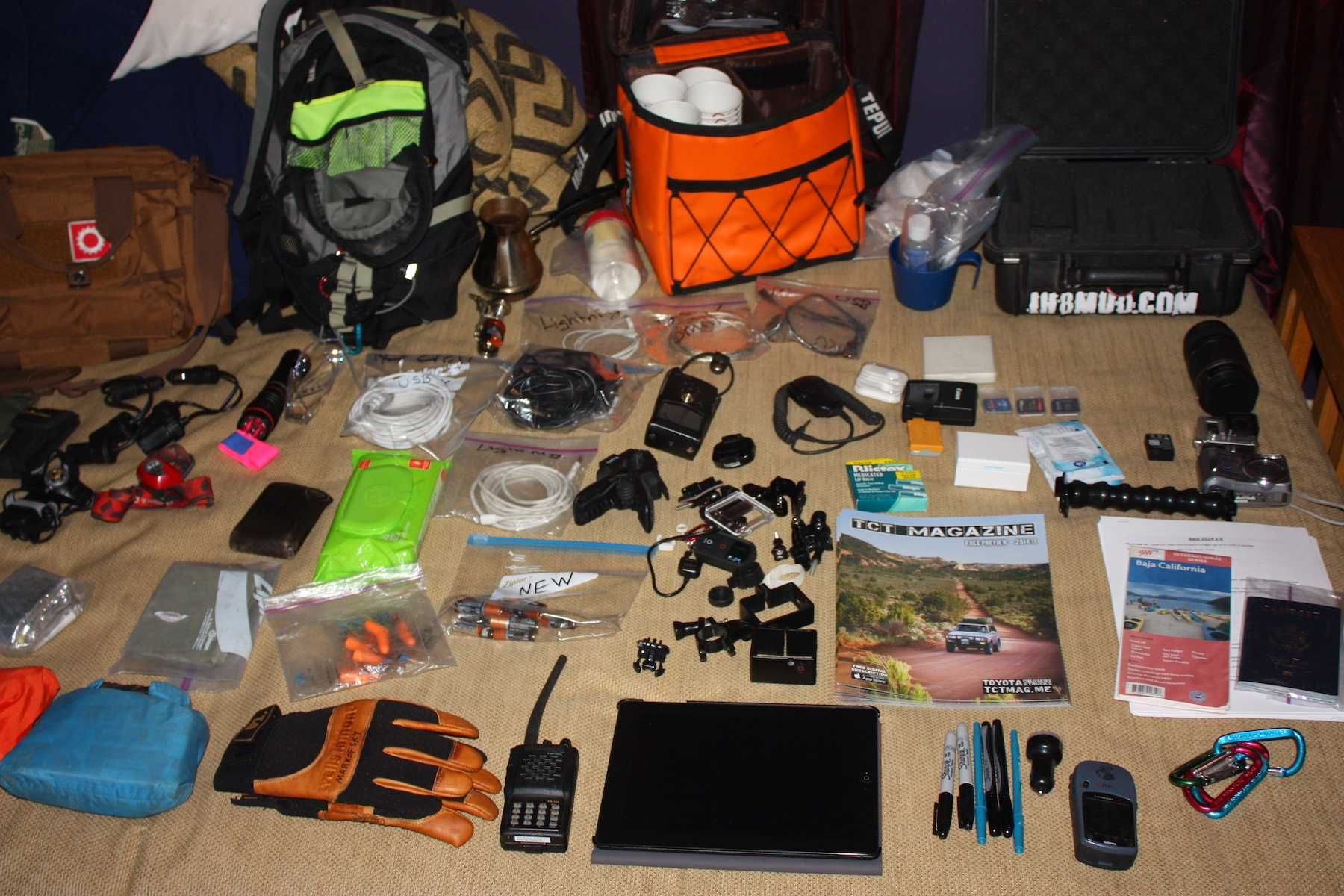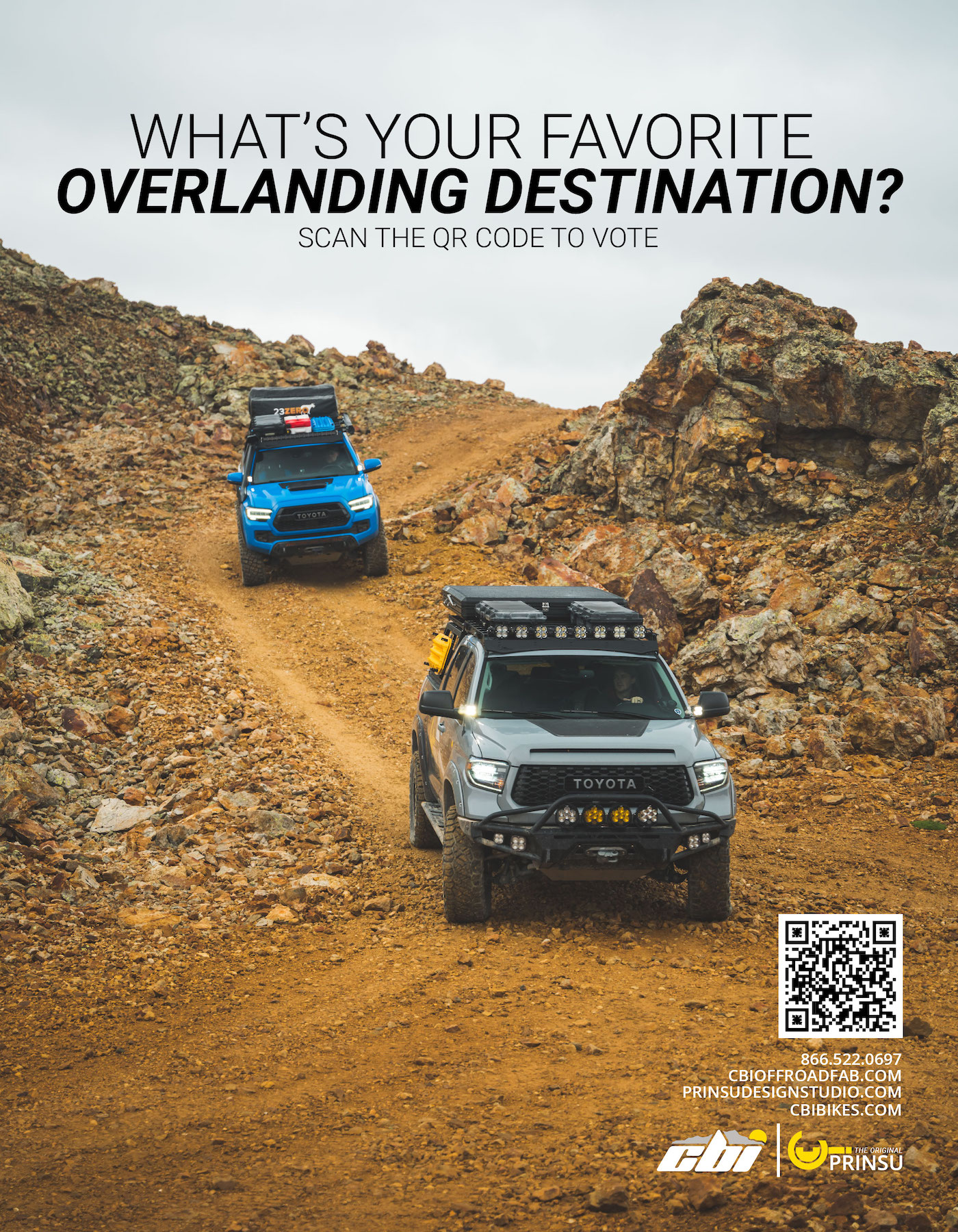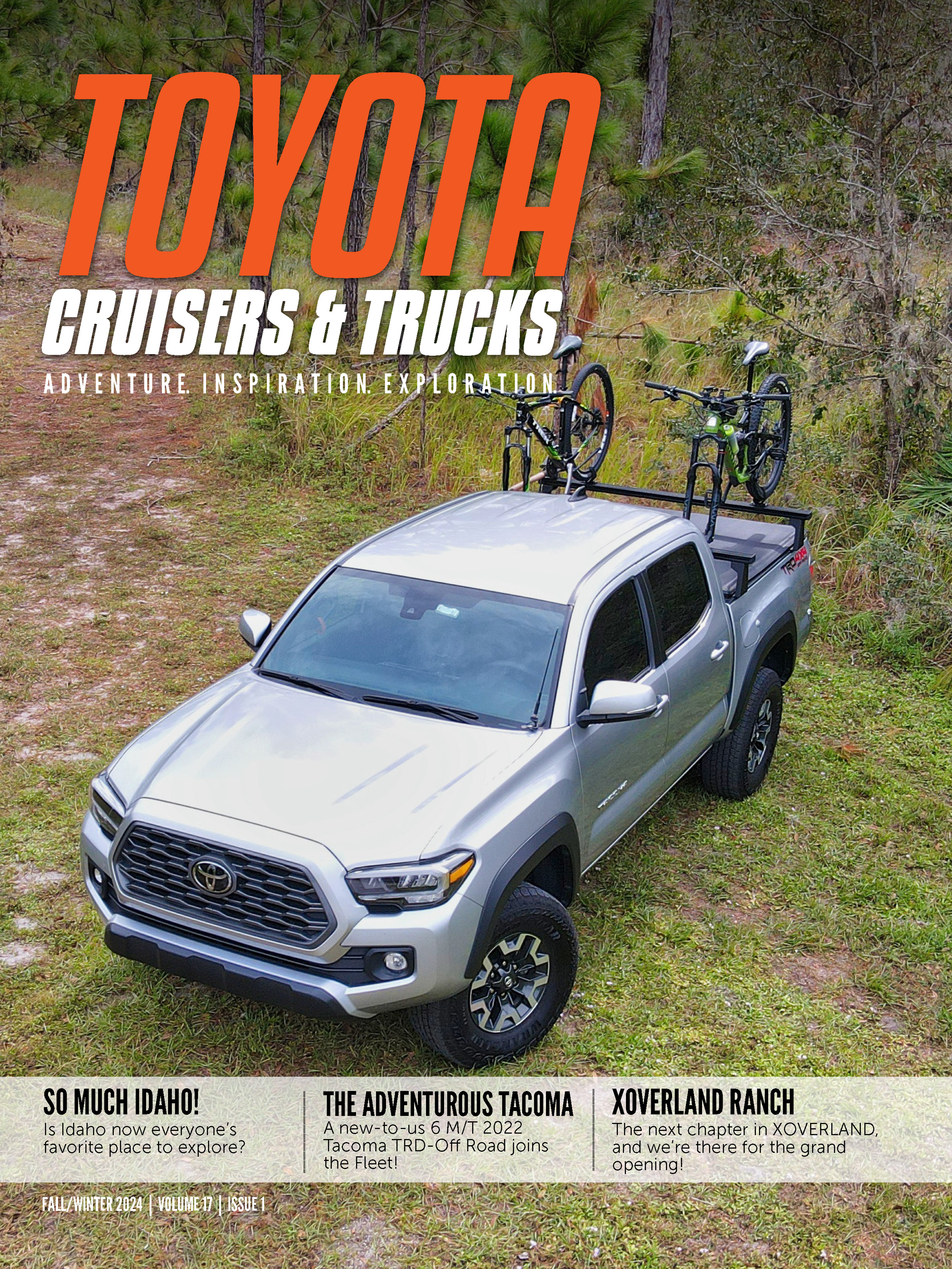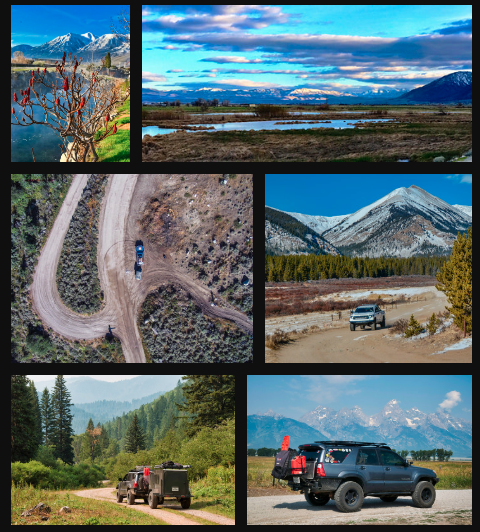Arriving home, the last thing on your mind is going through your gear. You brain is already thinking about tomorrow. You and your gear are covered in dirt, dust, smoke, sunscreen, spiders, caterpillars, and maybe soaking wet. It is compelling turn off the key and hit the couch. Don’t. Continue your adventure for another hour. You’ll save hours getting ready for the next trip.
Mostly we approach unpacking as a mundane or depressing task. You can transform it into the beginning of your next great adventure. Unpacking as soon as you get home is the best time and the best time to prepare for the next trip.
Consider how long it takes to pack for a trip. Certainly hours. Perhaps days. Consider how unsettled you get when packing. Trying to think of all the things to do and not forget. You are stressed and juggling a million things while trying to get out the door.
Arriving home you are relaxed, dreaming of the next adventure. (Even if just to avoid facing reality again). You pull into the driveway fresh from the exhilaration of an adventure. You are familiar with your gear, supplies, and condition. Trip un-packing gives you the chance to go over all of your gear at you own pace.
Start here: you are already packed for your next trip. You just need to clean a little and re-stock.

Arriving home, most things you need are already in your truck. Right then you know what you used, what never got used, what you have, what you don’t, what you want, and what you forgot. A week, two weeks, or six months from now when you're preparing for your next trip there are going to be things you forget. My grandmother taught me that it takes as much energy to remember to do something as to just do it. If you're trying to remember, you still have to do it anyway.
Want more incentive? Think back to that time you got to camp and had a moldy tent. Or you took out your stove and realized you did not refill the cooking fuel. Put your mind at ease that you’ll end up in the middle of the woods without a fork. Or toilet paper. Address all those items you realized you needed while on the trip you are returning from.
Trip unpacking extends a trip. When you get home there can be a post trip letdown. You start to remember all the obligations of daily life. I enjoy that little extra bit of garage time at the end. If traveling with the family it gives everybody a little more time to reminisce and integrate memories of the trail. You might even find yourself stashing some hidden trip surprises so that the kids can have fun unpacking.
I follow routines to end well and make sure I’m ready for the next adventure.
When you pull into your driveway, step outside and check your roof rack. Unload as needed. Rooftop tent? Open it up and let it air a while.

First unload clothing and bags that need to go into the house. Put your duffel right next to the washing machine and unload directly into it. Don’t move that bag away from washing machine until it’s empty. In fact sometimes the bag itself goes in afterwards. Then load the bag directly from eth dryer wit the dedicated trip items and put it back in the truck.
As the washer fills, I’m back in the garage unloading everything from the truck. Everything. Some of it goes right back in, but I have laid hands on it and made sure its ready for the next trip. I have a separate daily driver and a garage, so I can keep the truck loaded. If you need to empty your vehicle, keep your gear in ventilated plastic boxes for an easy grab and go.
Unpack all food. Remember that sandwich or cookie you once away, only to find it months later looking more like a science experiment? How about the time you left something in a cooler put it away on the shelf and came back to find a miniature version of where the wild things are. Yup, you know what I'm talking about. Sometimes I do not unload the fridge/ freezer. I plug it into the 120VAC.
I travel with Dometic or ARB fridge/freezers. The electric refrigerator makes life easier in so many ways. I don't have to remove all the perishables. I leave it running, plugged into 120VAC with some basic items – ice-cream, beer, and condiments – ready for the next adventure. Otherwise, that night, the next morning, or after work I unpack the fridge. Once empty, give it a good wipe down. When clean and empty, prop open or take off the lid entirely. This gives it a good opportunity to dry and ventilate. Unplug the power. That LED light or WiFi can drain your battery after a while.
Each item that has a specific place in the truck, goes back to that place. Items that need some attention go on the workbench. Going through each compartment of the truck – door pockets, glove box, center console – I know that I’m not leaving a sandwich or partially opened snack bar that will make ants and mice happy.
If my tent is wet, it gets set out to dry. If I’m home early enough and the weather is nice, I set up the tent outside. If its late and wet, unbag the tent and partially open it in a corner of the garage or slide it under your truck. Then come back the next day and move the truck out and set up your tent in the garage. Even if just let it sit partially open for a day are two to give all the creepy crawlies a chance to crawl away once they have determined that there’s nothing good for them to eat.
Was your sleeping bag warm on your trip? Is now the time to add a new one to the shopping list? Does it need to be washed? That 15 degree down sleeping bag of mine used to be warm under all conditions. In recent years I also I thought several times "I should wash the bag". I finally did wash it before a trip. I was comfortable every night. Store your sleeping bag properly. It must be completely dry and aired out before you pack it loosely away in the large stuff sack that it came with. Best is to store a sleeping bag by hanging loops most have at the foot end. Never store sleeping bag in a small stuff sack. Next time you need it, it will not expand to its full loft. Loft = warmth.
Store your self inflating air mattress open. Just like the loft of your sleeping bag, you want the foam in the air mattress to expand to its full potential. Most manufacturers call for it to be stored with the valve open. The open valve allows moisture to escape over time. Although we all know you shouldn't inflate the self inflating types by blowing into them because it introduces moisture, even that last puff of air puts a little bit in there. Store them unrolled. I keep mine on edge behind my sofa. Your mattress will self inflate more quickly next time.
With the washer humming away, the tent, sleeping bags, and mattresses prepared for the next go around, I turn my attention to the kitchen.
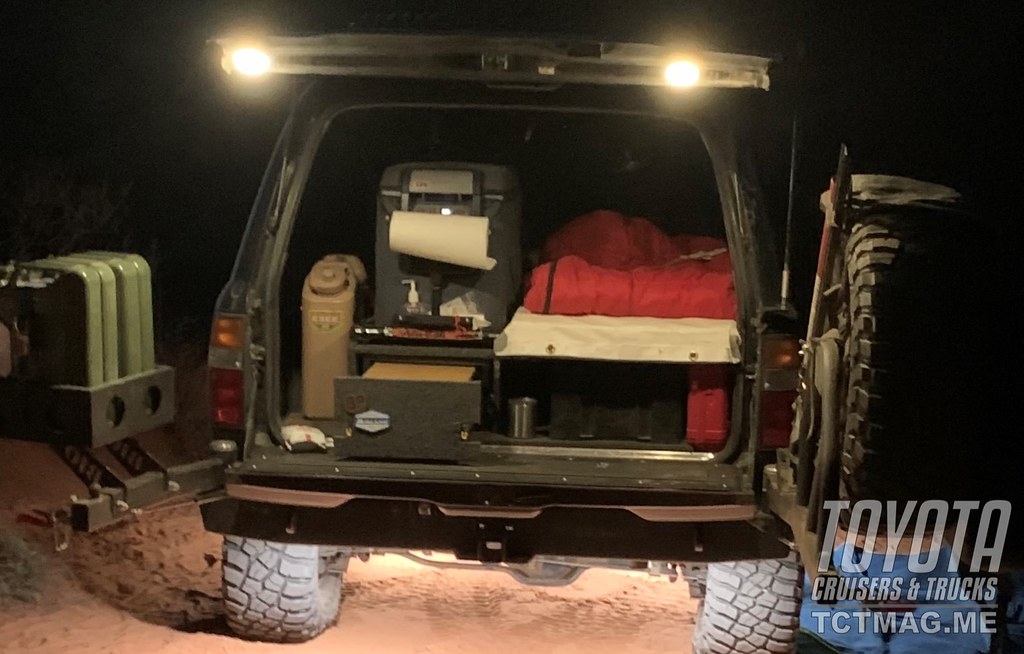
Go through the cook kit. Make sure pans and utensils are clean. Things that end up in the kitchen for a wash get back into the garage the next day or so.
Restock the silverware and spices. Make a list of what you have to buy. How many times have you’ve shown up to camp to cook dinner and found that you didn’t have cooking oil? Refill your bottles. Know that it’s always going to be there for you. I always head out on the trail with a couple of days of dried food. For me that means instant grits, dried potatoes, sardines, and food bars. These keep well for months in the kitchen kit.
If you can’t or don’t want to leave foods in the truck, designate a plastic storage bin for your garage, closet, or basement. Perhaps make room in your kitchen fridge for a small bag of essentials ready to grab and go. Last time I was camping and my friend’s young daughter wanted hot cocoa when we were all having coffee. The five year old cocoa packet in my kit made her morning.
Wipe down coolers and containers. Store to coolers and fridges with the lid slightly open so air can circulate otherwise of a very nasty surprise next time you open it.
Put everything in the same place the same time. When I leave for a trip if my gear shelves are empty, I’ve taken what I need. If you don’t have space in a garage, keep your gear in ventilated plastic boxes in a closet or bags for an easy grab and go.
Update your trip packing list and/or checklist. Take a moment to think what you forgot your last trip. What did you wish you had brought. What did you bring that you really didn’t need? Now is the time to update it. You can download a copy of mine at this link.
Does anything need to be repaired or replaced ? Did you put away the tent with one broken tent pole? Did you use up all your propane bottles? Was your firestarter working properly? Fix and replace those items.
And finally, the truck itself. Fresh in your mind are the things your like to always keep in the truck. For Colorado winters I keep emergency candles and food. Its OK you ate the emergency chocolate, just replace it. I always carry a warm hat, thermals, and gloves in the truck. If I wore them on the trip, load in a new set. Recently unpacking I saw I needed new glides for my drawers. An easy project in the shop.
Go through your tools and spare parts. You put that socket wrench and screwdriver away wet and muddy on the trail. Clean and dry it. Wipe it down with some WD40 and let it air a out a while. I’ll often hang my ratchet strap ratchets over a trash pail and spray the mechanism with WD40. You gave someone the spare brake fluid. Add it to your shopping list.
When cool, check the tire pressure. When you air up at the end of the trail you are filling and measuring a hot tire. Set the cold pressure back where you want it.
Finally, if you did not already spray off the mud and grime on the way home, put it on your calendar. Your rig and gear took good care of you and now you've done the same for it.
The experienced outfitter/overlander/four-wheeler, and yes, car camper, touches each piece of gear with thanks and gratitude for the adventure it has given and promise of adventure to come.
Welcome home. You just spent an hours and saved 5 by UN-packing for your next trip.

To get your copy of the
Spring 2021 Issue:
Follow us on Facebook, Twitter, and Instagram to get up-to-date industry news, events, and of course, amazing adventures, stories, and photos!




